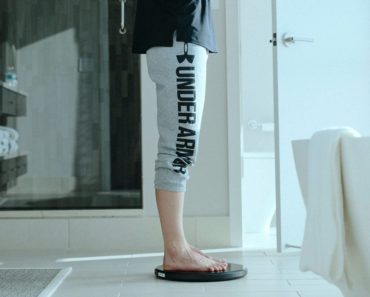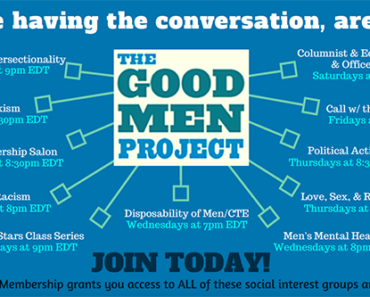
On April 12, 2012, Travis Mills, a U.S. Army staff sergeant in the 82nd Airborne Division, had been on patrol in Afghanistan when he triggered an IED. “I went from 250 [pounds] to 140. I’d lost 110 pounds in a matter of seven days, and I got so weak that I couldn’t roll left or right, or even sit up by myself without assistance. And I was like, ‘Well, that dog don’t hunt,’” Mills recalls of the choice he made in a military hospital bed.
The explosion took both of Mills’ arms and legs, but Mills decided he would not let the catastrophic injuries he’d suffered hold him back. He was going to come back stronger. He would not only walk again, but run. He was going to be every bit the husband and father he wanted to be. And above all, he would never quit. “Just like everything in life, it’s more mental than physical,” Mills says. “Physical is the easy one. The mental is what’s really was draining.”
Doctors at Walter Reed National Military Hospital told Mills he’d need two years to recover. Mills told them he’d do it in a year. Within six months of performing occupational and physical therapy for eight hours a day, he was walking on prosthetics well enough to return to his hometown of Vassar, Michigan.
He hasn’t slowed down since. Mills — who is one of just five surviving quadruple amputee servicemen to return from the wars in Iraq and Afghanistan — has exceeded every imaginable goal throughout his recovery. Today Mills, now 30, lives just outside of Augusta, Maine, with his wife, Kelsey, 28, their daughter Chloe, 6. The couple has a son on the way. Mills oversees a foundation and a veterans retreat when he’s not giving speeches, doing CrossFit or boating and fishing with his daughter.
“Well, I’m not crazy. I like catching. Fishing is kind of boring unless I’m catching,” Mills says.
Speaking with Mills is like plugging into a plutonium-powered generator. He is so full of energy you’ll feel inspired immediately.
Q: Your motto is, “Never give up, never quit.” Have you always had that mindset?
Mills: On my second deployment (Mills served three tours), there was a mission that was supposed to be five hours long — and it was 36 hours instead. Everything that could go wrong, did go wrong. It was to the point where you’re so exhausted you don’t know whether to laugh or cry, and I decided to laugh it off. That’s when I learned you can’t always control the situation, but you might as well be happy because it’s not going to change if you’re mad or angry. After that, there’s nothing that ever bothers me.
Q: Amazing. But still, your recovery couldn’t have been easy. What’s helped you the most?
Mills: My daughter and my wife. It might sound weird, but my daughter and I always go on a date night on Wednesdays, just me and her. So we used to go around Walter Reed and meet all the families. She’d be in my wheelchair and we would just go around and she’d eat grapes and cookies. We’d meet people, shake hands and tell them that everything is going to be OK. She is the biggest reason for my recovery.

Q: You told doctors that not only would you walk again, you were going to run. And you did. What was that like?
Mills: I was never a long-distance runner, but I was a pretty good sprinter. I truly like racing people over 100 meters or less. But to do that again, you’ve got to build yourself up. You go from no legs, to using short legs, to taller legs that don’t bend, to legs that do bend and then you get strong enough to put on running legs. Now I try to run farther every time. But I’m not anywhere near running a mile. But, I do 100-meter wind sprints at the gym.
Q: Where do you train?
Mills: I do CrossFit at CrossFit Undaunted. They just make up [workouts] for me. I can’t bench press any more. I can’t squat without knees, you know? And it’s not like I can do bicep curls — I’ve only got one bicep and triceps. But I can do yoke carries. I work on my abs and hip flexor muscles. And I’ll do wind sprints. I just like every challenge.
Q: You opened a retreat this year to help other critically wounded veterans. How’s it going so far?
Mills: We are hosting 56 families this summer. There are eight state rooms that are bedrooms. Each one houses a family, and each family stays for a week. Through the support we’ve received, we’re able to open for seven weeks this year. Our goal is to be open longer and host 80–100 families next year.
READ MORE > RACING THE STATES AND 19 OTHER NON-SCALE VICTORIES BY MYFITNESSPAL USERS
Q: What happens while they’re there?
Mills: When they come up, I tell them, “We believe in you, and we’re grateful for your service, and the sacrifice you made for the nation. We want to make sure you understand that life still goes on, you can still do things effectively.” And we invite the whole family to come because a big part of my recovery was needing my wife and my daughter. The fact I had them around me, and they were going through the same thing, was huge. So we’ve tried to create that here in Maine. It’s been going very well, to the point where I’ve seen a guy who’s missing his legs get to go kayaking with his 1-month-old son. They get to come up here and relax, learn new skills, and, you know, just see what possibilities they still have.

Q: You also do a lot of public speaking. What do you tell people, and how do they respond?
Mills: The first thing is that I didn’t serve any more than anybody else. I just had a bad day at work. But I didn’t do anything more special than anybody else who served. The next thing I tell them is my problems aren’t worse than anybody else’s. So I have a couple of extra steps in the morning. But I can do almost anything I want to do if I put my mind to it. I close with a couple of life lessons I’ve learned: That I can’t always control the situation, but I can always control my attitude. And that there’s no reason to dwell on the past because you can’t change it. So I’m just going to keep pushing forward and be grateful for the opportunities I still have with my family and my life in general.
You can learn more about Staff Sgt.Travis Mills and his foundation at travismills.org. Mills invites you to be a part of the second grand opening of the Maine retreat, which will take place this Fall. Details for that event will be announced at facebook.com/ssgtravismills.
The post How a Quadruple Amputee Army Vet Made His Comeback appeared first on Under Armour.
(via MyFitnessPal Blog)






